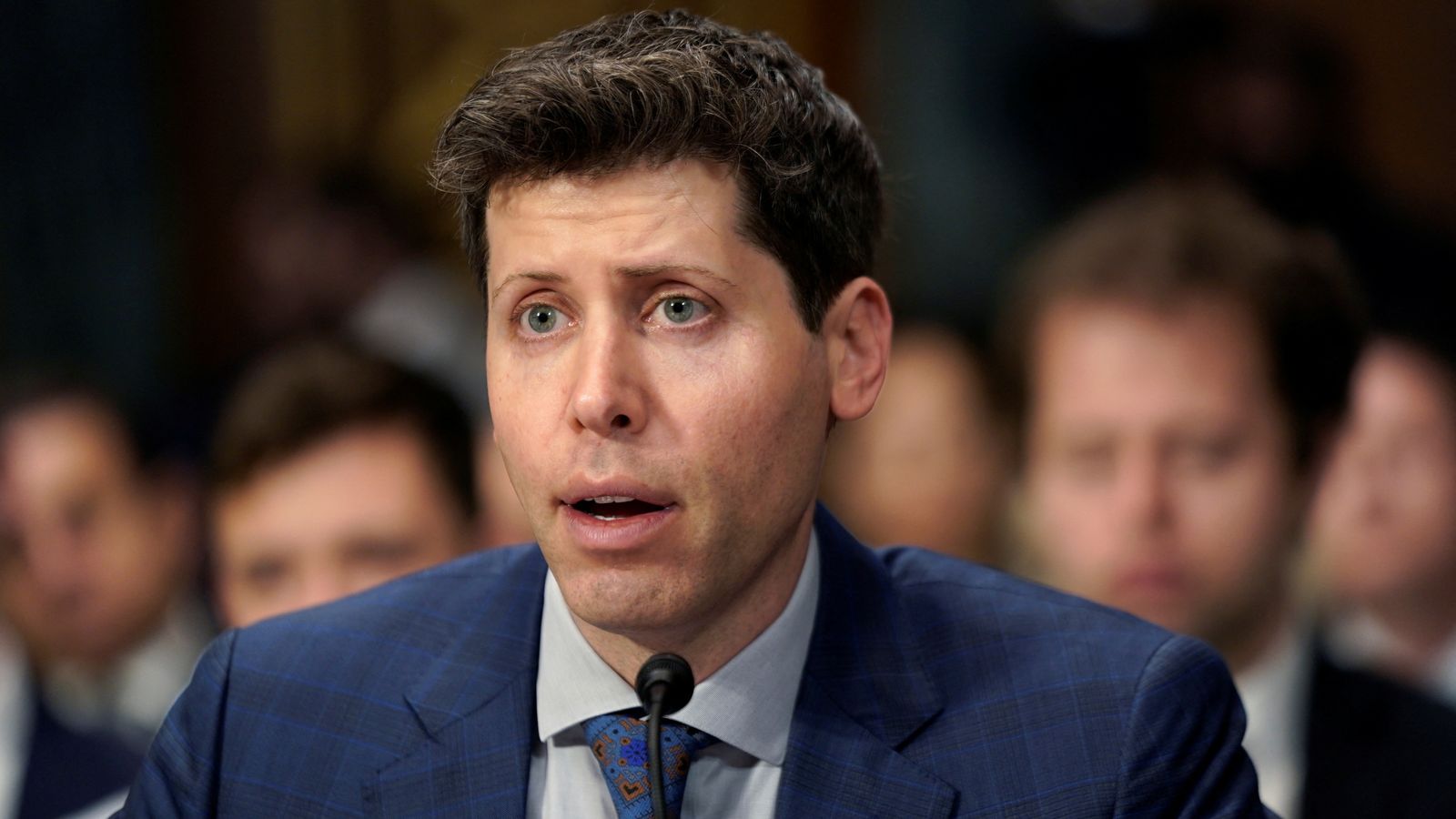The former OpenAI boss and ChatGPT guru who became one of AI’s biggest players
Disregarding Mark Zuckerberg and Elon Musk, Sam Altman seemed destined to become Silicon Valley’s next tech superstar. Here’s a look back at the life of the man who emerged as the face of OpenAI’s ChatGPT but was later ousted by the company.
Even before he completed elementary school, he exhibited expertise in technology. Exiting one of America’s top institutions without graduation, he projected a vision of leading a revolution destined to reshape our lives indefinitely.
Sam Altman’s recognition remained confined to the IT community until his company’s groundbreaking chatbot, ChatGPT, was unveiled. However, in recent times, he has extensively engaged with prominent American businessmen and foreign leaders.
Nevertheless, OpenAI, the company behind ChatGPT, surprised everyone on Friday with the announcement of Altman’s dismissal as CEO, attributing it to a lack of trust from the board.
Here, Nfinit Hub reviews the 38-year-old’s rise to prominence before his sudden termination.
Early Life
Growing up in the US state of Missouri, Altman received his first computer as a gift when he was eight years old, quickly acquiring the skills to not only operate it but also to program.
In a 2016 interview with The New Yorker, Altman, a student at St. Louis’ John Burroughs School, mentioned that owning a computer-assisted him in coming to terms with his sexuality and disclosing it to his parents during his teenage years.
“Growing up gay in the Midwest in the 2000s was not the most awesome thing,” he remarked. He also added, “Using AOL chatrooms changed my life. When you’re eleven or twelve, secrets are horrible.”
School
Upon completing school, Altman proceeded to university, specifically Stanford. Enrolling in the esteemed California University for Computer Science, he departed after just two years, joining the league of other dropouts-turned-tech titans like Mark Zuckerberg and Bill Gates, who relinquished their Harvard degrees to become powerful CEOs.
For top tech entrepreneurs, sacrificing a coveted spot at prestigious universities appeared a common step towards success, a trend mirrored by the now-disgraced Elizabeth Holmes, who left Stanford to infiltrate Silicon Valley, sparking a media frenzy similar to Altman’s present attention.
His initial venture after college was a smartphone app named Loopt, which enabled users to selectively share real-time location information. The startup garnered funding from Y Combinator, an incubator supporting companies like Airbnb and Twitch. Approximately $30 million (£24 million) was raised for its inception.
Following Loopt’s sale for $44 million (£35 million) in 2012, Altman assumed the role of Y Combinator’s president in 2014. Additionally, he founded Hydrazine Capital, a venture capital firm featured in Forbes’ 30 Under 30 list due to its successful funding endeavors. In 2014, Altman briefly led Reddit for eight days during a leadership transition, adding to his already busy schedule. He described his stint there as “sort of fun.”
The rise of OpenAI
He oversaw OpenAI for eight years, despite his stint at the head of Reddit lasting only eight days. In a February tweet, he claimed to be “doing pretty well” with it—at least in comparison to Loopt, which he now claims “sucked.”
In 2015, he co-founded the business with Elon Musk, who then solely managed SpaceX and Tesla. Together, they secured $1 billion (£800 million) in capital from companies like Amazon and Microsoft.
Operating as a nonprofit, the business aimed to create AI without posing a threat to humanity.
Despite the accomplishments, Altman suggests that the risk has now significantly manifested.
Under his leadership, OpenAI’s generative AI tools—ChatGPT for text and DALL-E for pictures—led the company to shift away from nonprofit status, soaring to an estimated worth of up to $29 billion (£23 billion).
Microsoft CEO Satya Nadella lauded Altman as an “unbelievable entrepreneur” for his strategic investments, given OpenAI’s achievements.
Shortly after its late 2022 launch, ChatGPT attracted tens of millions of users, impressing experts and laypeople with its diverse abilities.
Large language models surged in popularity, prompting increased funding from Microsoft and integration into its Office suite and Bing search engine.
Major Chinese tech giants joined the competition, while Musk—who left OpenAI in 2018 due to a Tesla-related conflict—expressed intentions to start his chatbot. Google also introduced its Bard chatbot.
OpenAI’s technology continued advancing; the GPT-4 improvement, released shortly after ChatGPT, showcased the rapid evolution of these models.
In a brief period, Altman met with influential figures like Ursula von der Leyen, Emmanuel Macron, Rishi Sunak, and Kamala Harris, sharing similar AI concerns.
Altman, considered an upstart, appears more likely to sustain tech stardom than his predecessors amid various tech industry challenges.
Previously acknowledging being a prepper—someone who prepares for worst-case scenarios—Altman’s resignation as OpenAI CEO following an investigation revealing his lack of consistent candor with the board. He shared on social media post-resignation, “I had a great experience working with OpenAI.”


Leave a Reply